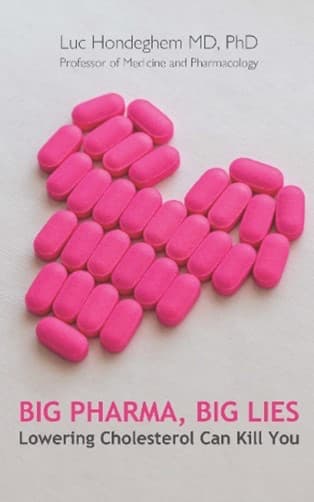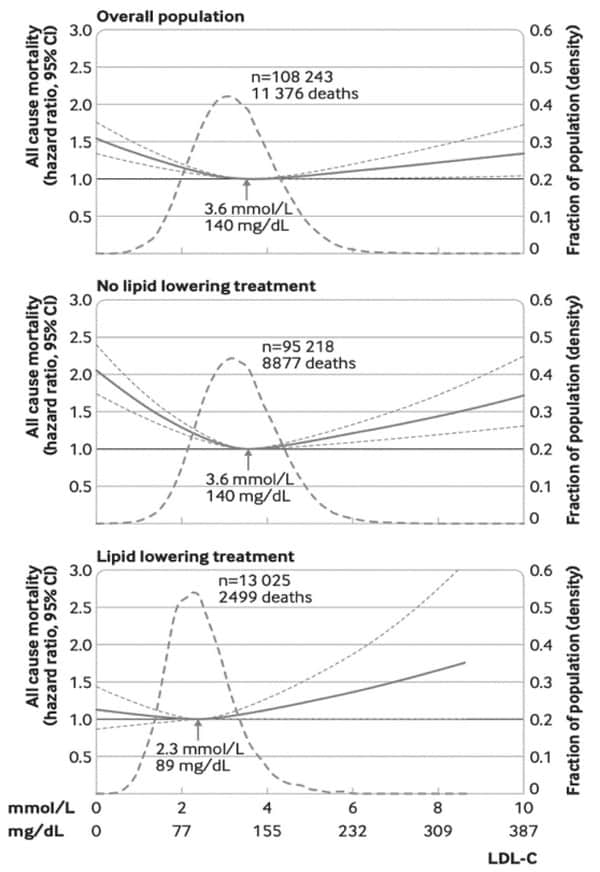
Press release
Contact communicatiepartner:
Elsie Van Linthout at Luna
Mobile: +32 475 26 01 03
elsie@luna.be
Big Pharma, Big Lies: “Statins that lower cholesterol should be taken off the market”
- “Big Pharma, Big Lies”: only 11% of medications has been proven to be beneficial and safe.
- Statins are surrogate medications which simply lower cholesterol but do not prolong life. Worse: they have many side effects, including death.
- Appeal to the regulators to only approve drugs after autonomous testing and on the conditions that they are beneficial and safe, and better than currently available medication.
Ostend, Belgium – In his book “Big Pharma, Big Lies” Prof. Dr Luc Hondeghem urges regulators to only accept medications that satisfy efficacy and safety, and to continuously monitor these accepted drugs, as some drugs can become harmful in a later phase. The current process allows too many medications to enter the market with uncertain or no benefits, some even detrimental to our health. Only 11% of all medications has been proven beneficial and safe. For example: statins were developed to prolong life but this is not the case. On the contrary, they do lower cholesterol – but this is not necessarily beneficial for the patient – while they have numerous side effects, including all-cause death (cancer, diabetes, muscle pain, and many more).
Dr Luc Hondeghem, Professor of Medicine and Pharmacology (retired) had an impressive career in the US and in Belgium. He appeals to strengthen the approval process for new medications. Indeed, today drugs can be approved after an evaluation by the pharmaceutical company that actually wants to introduce the drug to the market. Such a process is prone to failure due to a possible conflict of interest. Some drugs even enter the market without formal approval. Indeed, if the FDA (the Food and Drug Administration) does not object to the approval of a drug within 180 days after the submission for an approval, the drug is automatically approved.
As a result, new drugs, even if inferior to existing drugs, can be released on the market seemingly authorised. This is misleading to doctors and their patients who deserve better medications. Dr. Hondeghem hoped to inform the public about which 11% of drugs have been proven to be safe and effective, however the organisation in charge was reluctant to disclose this list of data.
Luc Hondeghem: “We urgently need fully independent and autonomous medical regulators who only approve drugs according to the Hippocratic Oath: when the benefits outweigh the harm.”
Statins that lower cholesterol should be taken off the market
Patients are being told that there is so-called “good” and “bad” cholesterol. Consequently, doctors prescribe statins to lower their patients’ “bad” cholesterol. However, this theory of “bad” cholesterol – along with the notion that saturated fats should be avoided to reduce “bad” cholesterol – is a lie. Research has proven that saturated fats do not affect coronary heart diseases nor all-cause death. The real problems occur when cholesterol oxidizes. Not statins, but a healthy lifestyle and a Mediterranean diet with many antioxidants have significantly proven to prevent such dangerous cholesterol oxidation.
Both an insufficient or an excess amount of cholesterol leads to diseases, but there is a substantial range in between with a perfectly acceptable amount. Over the years, an increasing number of patients have been prescribed statins to lower and further lower their cholesterol. In his book, Luc Hondeghem refers to research performed in Denmark on two similar groups of patients over a period of 9 years (cfr the illustration below). In the group taking statins to lower their cholesterol there were twice as many deaths compared to a similar statin-free group (19.2% versus 9.3%). Studies show that statins do lower the cholesterol in blood but increase the all-cause mortality because of their numerous side-effects: cancer, diabetes, heart disease, etc.

Based on this research, Luc Hondeghem concludes: “Doctors should not consider using statins to lower cholesterol as they do not prolong life; instead, they shorten life”. But statins are a trillion-dollar business, and the big pharmaceutical companies have a strong lobbying power towards governments. However, this concerns our fellow-citizens’ health, so we should never settle for a compromise, let alone for the profits of big pharma.”
To the editors
Would you like more information or an interview? Please contact Elsie Van Linthout at Luna: elsie@luna.be, +32 475 26 01 03.
About the book
The self-published book is available through Amazon. A paper version costs $16,99 or €16. The e-book costs $9,50 or €9,99.
The (almost) link to the book (copy it into your browser and remove the space after “https:”)
https: //amzn.to/3ngcvbP
About the author
Luc Hondeghem MD, PhD (1944, Jabbeke, Belgium) is a retired professor in Medicine and Pharmacology. He obtained his M.D. and M.S. at the University of Leuven (Belgium) and his Ph.D. in pharmacology at the University of California San Francisco, where he worked in cardiac electrophysiology for 15 years. Then he became Professor of Medicine and Pharmacology at Vanderbilt University in Nashville and became the Director of the Stahlman Cardiovascular Research Center. From 1990 onwards, he taught cardiovascular electrophysiology at the University of Leuven and founded an electrophysiological laboratory named Hondeghem Pharmaceutical Consulting in Ostend, Belgium.
The laboratory conducted over 25,000 experiments. Many drugs showed arrhythmia problems in the heart which can lead to death. For example, domperidone is a substance present in Motilium and Touristil and it can lead to deaths. Luc Hondeghem several times refused to sign a misleading report written by the pharmaceutical company. Eventually, Touristil was removed from the market and Motilium is now available on prescription only and only for patients from 12 years onwards. Hondeghem is still convinced that it would be better for our health if it would be taken off the market completely, since it has little or no benefit but many detrimental side-effects.
Luc Hondeghem participated in 33 books and wrote 82 publications. He has now published his last book, “Big Pharma, Big Lies”, as his civil duty to inform the public about the poor quality of most medicines, using statins as a shocking example. He chose to self-publish, after five most renowned medical journals refused to publish his papers stating these inconvenient truths.


